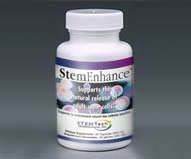Saturday, December 8, 2007
It is my humble opinion that one of the greatest authorities on alternative health today is Dr. Joseph Mercola of Mercola.com. So when he takes the time to set out his 12 step strategy for eliminating and/or reducing your cancer risk, I believe it is worth noting.
MY CANCER-BUSTING DOZEN APPROACH
By: Dr. Joseph Mercola, MD
I believe you can VIRTUALLY ELIMINATE your cancer risk and radically improve your risk of recovering from cancer if you currently have it. All you need to do is follow these relatively simple risk reduction strategies. You won’t read or hear much about them because they have not been formally "proven" yet by conservative researchers. However, most people do not know that 85 percent of therapies currently recommended by conventional medicine have never been formally proven either.
So here are the Twelve Strategies
1. Reduce your processed food, sugar and grain carbohydrate intake. Yes, this is even true for whole unprocessed organic grains as they tend to rapidly break down and drive your insulin and leptin levels up, which is the last thing you need to have happening if you are seeking to resolve a cancer.
2. Control your fasting insulin and leptin levels: This is the end result, and can be easily monitored with the use of simple and relatively inexpensive blood tests.
3. Normalize your ratio of omega-3 to omega-6 fats by taking a high-quality krill oil or fish oil and reducing your intake of most processed vegetable oils.
4. Get regular exercise. One of the primary reasons exercise works is that it drives your insulin levels down. Controlling insulin levels is one of the most powerful ways to reduce your cancer risks.
5. Normalize your vitamin D levels and vitamin A levels by getting plenty of sunlight exposure and consider careful supplementation when this is not possible. If you take oral vitamin D and have a cancer it would be very prudent to monitor your vitamin D blood levels regularly.
6. Get a good night's sleep.
7. Eat according to your nutritional type. The potent anti-cancer effects of this principle are very much underappreciated. When we treat cancer patients in our clinic this is one of the most powerful anti-cancer strategies we have.
8. Reduce your exposure to environmental toxins like pesticides, household chemical cleaners, synthetic air fresheners and air pollution.
9. Limit your exposure and provide protection for yourself from information carrying radio waves produced by cell phone towers, base stations, phones and WiFi stations.
10. Avoid frying or charbroiling your food. Boil, poach or steam your foods instead.
11. Have a tool to permanently reprogram, such as the neurological short-circuiting that can activate cancer genes. Even the CDC states that 85 percent of disease is caused by emotions. It is likely that this factor may be more important than all the other physical ones listed here, so make sure this is addressed. Energy psychology seems to be one of the best approaches and my particular favorite tool, as you may know, is the Emotional Freedom Technique. German New Medicine is another powerful tool.
12. Use broccoli sprouts as an adjunct to everything above unless you simply do not like broccoli.
MY CANCER-BUSTING DOZEN APPROACH
By: Dr. Joseph Mercola, MD
I believe you can VIRTUALLY ELIMINATE your cancer risk and radically improve your risk of recovering from cancer if you currently have it. All you need to do is follow these relatively simple risk reduction strategies. You won’t read or hear much about them because they have not been formally "proven" yet by conservative researchers. However, most people do not know that 85 percent of therapies currently recommended by conventional medicine have never been formally proven either.
So here are the Twelve Strategies
1. Reduce your processed food, sugar and grain carbohydrate intake. Yes, this is even true for whole unprocessed organic grains as they tend to rapidly break down and drive your insulin and leptin levels up, which is the last thing you need to have happening if you are seeking to resolve a cancer.
2. Control your fasting insulin and leptin levels: This is the end result, and can be easily monitored with the use of simple and relatively inexpensive blood tests.
3. Normalize your ratio of omega-3 to omega-6 fats by taking a high-quality krill oil or fish oil and reducing your intake of most processed vegetable oils.
4. Get regular exercise. One of the primary reasons exercise works is that it drives your insulin levels down. Controlling insulin levels is one of the most powerful ways to reduce your cancer risks.
5. Normalize your vitamin D levels and vitamin A levels by getting plenty of sunlight exposure and consider careful supplementation when this is not possible. If you take oral vitamin D and have a cancer it would be very prudent to monitor your vitamin D blood levels regularly.
6. Get a good night's sleep.
7. Eat according to your nutritional type. The potent anti-cancer effects of this principle are very much underappreciated. When we treat cancer patients in our clinic this is one of the most powerful anti-cancer strategies we have.
8. Reduce your exposure to environmental toxins like pesticides, household chemical cleaners, synthetic air fresheners and air pollution.
9. Limit your exposure and provide protection for yourself from information carrying radio waves produced by cell phone towers, base stations, phones and WiFi stations.
10. Avoid frying or charbroiling your food. Boil, poach or steam your foods instead.
11. Have a tool to permanently reprogram, such as the neurological short-circuiting that can activate cancer genes. Even the CDC states that 85 percent of disease is caused by emotions. It is likely that this factor may be more important than all the other physical ones listed here, so make sure this is addressed. Energy psychology seems to be one of the best approaches and my particular favorite tool, as you may know, is the Emotional Freedom Technique. German New Medicine is another powerful tool.
12. Use broccoli sprouts as an adjunct to everything above unless you simply do not like broccoli.













